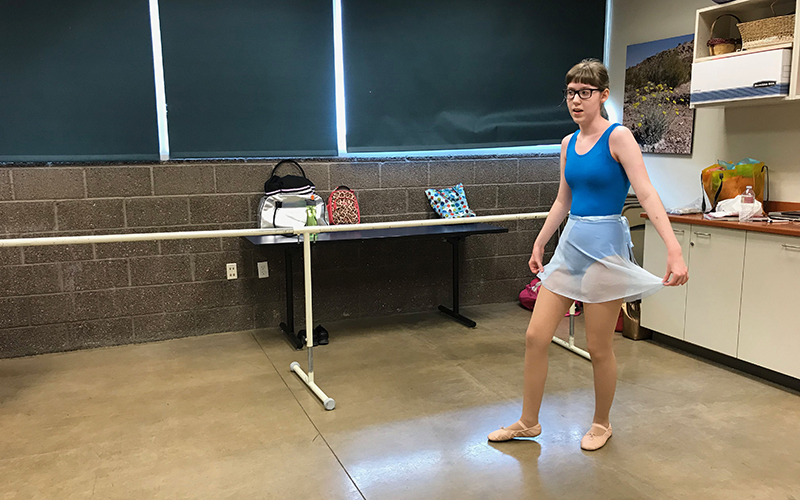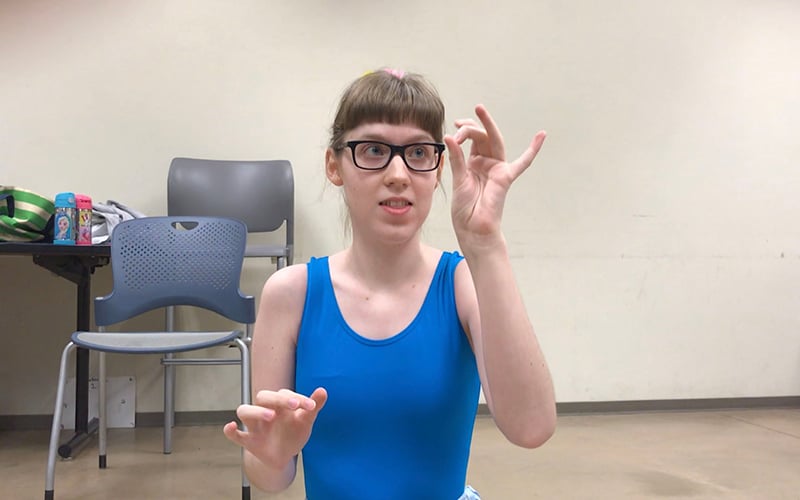PHOENIX – Chelsea Gannon is dancing her way to her joy – jumping, spinning and gliding across the floor.
The pirouettes and pliés are helping her overcome a childhood diagnosis of a motor-skills disability. The 15-year-old has played major roles, such as a lead in “The Nutcracker” at the Orpheum Theatre and a mouse in “Cinderella” at the Herberger Theater, for the Innerdancer Performing Arts company, which teaches about 25 youngsters with and without disabilities.
“When I first came to dance, I didn’t know much about pliés, chassés and other things,” Chelsea said as she put on her Russian dance skirt to practice. But ballet changed her world, she said, even beyond the stage.
Gannon was diagnosed as a young child with dyspraxia, a disorder affecting movement and coordination. Her mother said routine actions, such as buttoning a blouse or reaching for a water bottle, weren’t possible.
“For her to control her muscle movements, which comes naturally to us, she goes through multiple steps in her brain,” Gannon said. “Even then, it may take a lot of time and practice before she can do it.”
She tried her to put her daughter in other programs but was rejected. It was heartbreaking, she said, to learn that some people wouldn’t work with her daughter because of her severe disability.
“Just because someone has a disability doesn’t mean they stop dreaming,” Gannon said.
Then the family met Caroline Bossmeyer, founder of the Innerdancer company.
“When I met Chelsea, I immediately saw how much joy she has for music and for dance,” recalled Bossmeyer, who started the company in 2009.
Chelsea kept practicing and performing, working on other motor skills through dance therapy. One night, she had what her family calls the “button breakthrough.”
“We had been working in occupational therapy for a long time to try and teach Chelsea how to do her buttons,” Gannon said. “The simple skill of pushing it through on one side and grabbing it and pulling it through on the other just wasn’t connecting.”
But as Chelsea practiced her dance steps, Bossmeyer encouraged her to tap her fingers together to hold artificial flowers that were strewn on the floor. She kept trying, again and again. One day, she picked them up – and threw them into the air like confetti.
“I had been working on my fingers with the flowers with Caroline and then I just got it and one night I did it. I did my buttons,” Chelsea said.
Gannon said Bossmeyer works with Chelsea not only on dance, but to help her with other skills, whether that’s picking up a cup or maintaining her balance as she’s walking.
“Caroline has changed my life and made me a better dancer and a more graceful person,” Chelsea said. “And I love her for that.”

